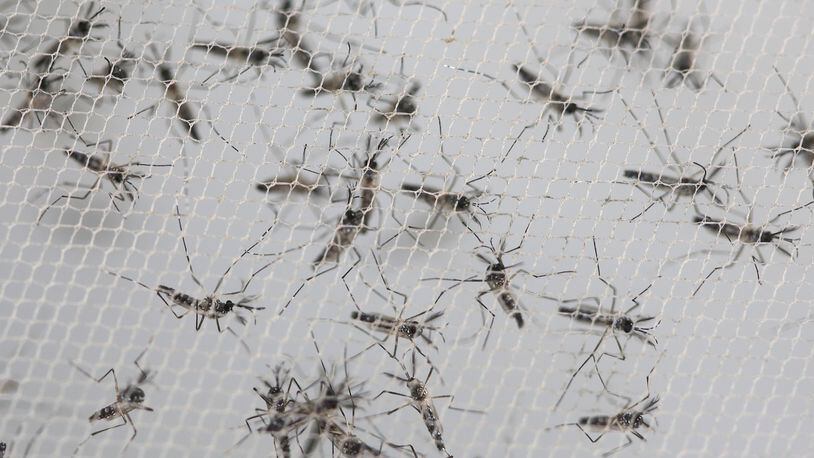>>Related: The CDC says pregnant women should not travel to these countries
"I wish we knew more about Zika today, I wish we could do more about Zika today," said CDC Directer Tom Frieden in a morning press conference. "It's a new phenomenon."
Frieden said the U.S. should “expect a lot more travel related cases” as the weeks and months go by. This of particular concern as mosquito season approaches across the Deep South. The virus is spread by two kinds of mosquitoes typically found in the region.
Frieden offered his strongest comments yet about the link between the insect-borne virus and the birth defect, microcephaly, which causes babies to be born with unusually small heads and cognitive problems. He said tests on fetal brain tissue have showed the presence of the virus, but it’s unclear at what point in a pregnancy a fetus can be infected with Zika.
In the coming months, as children are born to women who may have traveled to the affected Caribbean and South American regions early in their pregnancies, more cases of microcephaly will likely appear in other countries, he said.
“We’re not aware of any other mosquito-borne disease with such devastating outcomes” of birth defects, Frieden said. “It’s scary for women who are pregnant or are considering pregnancy.”
As the Atlanta Journal-Constitution reported on Thursday, the CDC is now advising any man who has travel to one of the affected countries, to use condoms during all sexual encounters with their pregnant partner for the duration of the pregnancy. Either wear a latex condom during vaginal, oral or anal sex, or abstain from sex completely, the new guidelines suggest.
On Friday the agency recommended any pregnant woman who has traveled to one if the affected countries be tested for the presence of the virus between two to 12 weeks of her return home. And no pregnant woman should travel to any of the affected countries while she is pregnant.
While women who think they may have been exposed to the virus should get tested, Frieden admitted that testing kits for the virus are in short supply and will not be available at the offices of most health care providers.
“Not everyone who wants a test will be able to get it but we’re working as fast as we can,” Frieden said. “We’re rolling out test kits to distribute.”
Pregnant women will be first to receive them.
The CDC already has teams of epidemiologists in Brazil working with doctors there. More CDC teams are going next week and will be deployed to other areas where the disease is taking hold.
Several news outlets reported on Friday that Brazilian researchers, where the outbreak began, have found traces of the virus not only in semen, but urine and saliva. Frieden said he had not yet seen that research and was cautious about the report.
“We have no data to support urine or saliva,” transmission at this point, Frieden said.
The virus departs the blood within a week leaving antibodies to the virus. Because only one in five people have symptoms of the virus, tests try to detect those antibodies to determine exposure. Researchers have yet to determine how long it persists in semen.
Apart from condoms and abstinence, Frieden said the best way to protect against the disease is to avoid mosquito bites. And as temperatures and mosquito populations rise, municipalities will have to examine their mosquito abatement policies, he added.
About the Author
